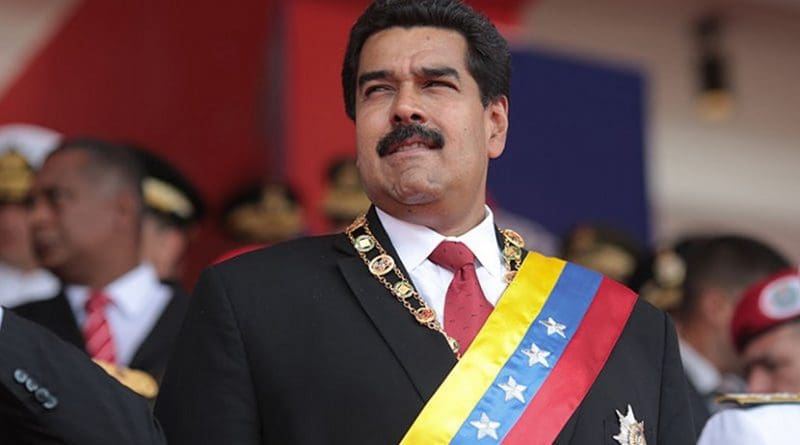Venezuela: An Unsettling Stasis – OpEd
By Samuel Pence
Over the last few weeks, the listing ship of Venezuelan president Nicolás Maduro looks to have righted itself.
Plagued by fierce opposition to his politics and questionably legitimate presidency since early 2014, Maduro looked to be slated for a year-end exit from his executive post as recently as this past October. Yet in the face of violent protests and a flood of sanctions, Maduro and his party, the United Socialists, have retained a steady grip on the tiller of power in Latin America’s poorest nation.
This latest – and certainly most momentous – Pax Venezolana can be traced to several recent developments. On one side of the power spectrum, the anti-socialist coalition Mesa de la Unidad Democrática (MUD) has splintered into a demoralized array of oppositional camps following this year’s gubernatorial elections. After fraudulent results at the polls, the opposition suffered its worst trauma in years as four of its victorious candidates pledged fidelity to Maduro’s sham congressional body, la Asamblea Nacional Constituyente. The defections have exposed deep fissures among the coalition, some elements of which opted out of last week’s mayoral races citing a need to shore up unity ahead of next year’s presidential vote. In response, Maduro has vowed to ban MUD candidates from the race, though his capacity to enforce such threats remains uncertain.
One arrow already in the quiver is military allegiance. Yet while the military has remained loyal to the ruling socialist regime since strongman Hugo Chávez took power in 1999, Maduro is taking no chances. In late November, the president named Major General Manuel Quevedo to head state-run oil firm PDVSA while elevating a handful of other military officers to senior roles at the company. The appointments are sure to strengthen the vital bond between Venezuela’s military and government, even as the rest of the country’s institutions crumble and antipathy towards its corrupt elite grows.
Alongside a fracturing opposition and obliging military, the United Socialists can, ironically, count Venezuela’s cratering economy among its political assets. In early November, the government announced a plan to restructure PDVSA’s more than $120 billion of foreign debt over the coming months. Meanwhile, hyperinflation and a national cash shortage have sown untold misery among ordinary Venezuelans.
If the timing is right, however, each of these financial woes may prove advantageous to Maduro and his party. On one hand, a wave of restructuring would allow the government to temporarily reroute funds to state operations and government assistance, creating the illusion of economic recovery ahead of next year’s election. On the other hand, poor working conditions will continue to drive out Venezuela’s entrepreneurial class, which forms a multitude of the nearly two million citizens who have fled the country since 1999. This is good news for Maduro, whose power expands in tandem with the portion of Venezuelans dependent on social welfare programs.
Of course, in order to capitalize on their momentum, the United Socialists must nail down an early 2018 date for presidential elections. Any later than this and its leaders run the risk of a reunified MUD, an expired shot clock on debt payments, and further rounds of targeted sanctions.
In the background of this drama, developments surrounding the North American Free Trade Agreement between the United States, Canada, and Mexico may prove pivotal. Mexico currently leads the charge within the Organization of American States in pressuring Venezuela to return to democracy, but if the United States backs out of NAFTA, Mexico may see little value in continuing this effort. This is especially true in light of a continent-wide nationalist surge reflected by leading Mexican presidential candidate Andrés Manuel López Obrador, who has held off on condemning the Maduro regime. In the event of a López Obrador presidency, Maduro would surely have fewer qualms with perpetrating human rights abuses within his borders.
Until then, though, the relative stability in Venezuela ought not be confused with peace or progress. Indeed, this most recent lull between Venezuela’s warring parties might be better viewed as a kind of calm before the storm – a temporary stasis that, if ignored, may soon be set in stone.
The opinions, beliefs, and viewpoints expressed by the authors are theirs alone and don’t reflect any official position of Geopoliticalmonitor.com.

